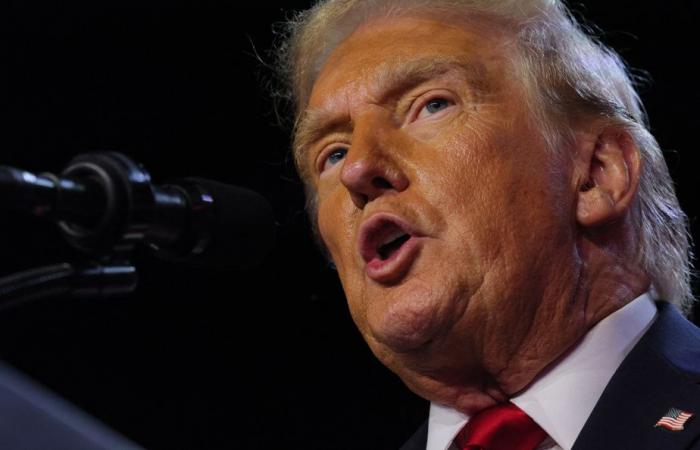(Washington) A good governance group is warning of serious consequences if President-elect Donald Trump continues to avoid formal planning for the transition with the Biden administration – an inaction that the group says is already limiting the capacity of the federal government to provide security clearances and briefings to the new administration.
Published at 9:15 p.m.
Zeke Miller and Will Weissert
Associated Press
Without planning, says Max Stier, president and CEO of the nonprofit Partnership for Public Service, “it wouldn’t be possible to be ready to govern on day one.”
The president-elect transition is being led by Cantor Fitzgerald CEO Howard Lutnick and Linda McMahon, the former wrestling executive who led the Small Business Administration during Mr. Trump’s first term. They said last month they expected to sign agreements beginning the formal transition process with Joe Biden’s White House and the General Services Administration (GSA), which essentially acts as the government’s landowner federal.
But these agreements have still not been signed and the pressure is starting to mount.
This delay delays the federal government’s ability to begin processing security clearances for potentially hundreds of Trump administration national security appointees. That could limit staff who could work on sensitive information between now and Inauguration Day, Jan. 20.
It also means that Donald Trump appointees cannot yet access federal facilities, documents and personnel to prepare to take office.
The agreements are required by the Presidential Transition Act, which was signed into law in 2022. They require the president-elect’s team to agree to an ethics plan and limit and disclose private donations.
In this law, Congress set deadlines of 1is September for the agreement with the GSA and on 1is October for the agreement with the White House, in an effort to ensure that incoming administrations are ready to govern as soon as they take office. Both deadlines have long passed.
Max Stier, whose organization works with candidates and incumbents on transitions, said on a call with reporters Friday that a new administration “comes in with the responsibility of taking over the most complex operation in the planet.”
“To do it effectively, they absolutely have to have done a lot of groundwork,” he insisted, adding that Mr. Trump’s team “approached this in a way, frankly, different from any previous transition “.
“They have, until now, ignored all the tradition and, in our opinion, the vital agreements with the federal government,” pointed out Mr. Stier.
In a statement this week, Mr. Lutnick and Mr.me McMahon said Donald Trump was “selecting personnel to serve our nation under his leadership and implement policies that make life affordable, safe and secure for Americans.” They did not mention signing any agreements to begin the transition.
A person familiar with the matter said ethics disclosures and contribution limits imposed by Congress were factors in the hesitancy to sign the deals.
Mr. Trump’s transition spokesman, Brian Hughes, said Friday that the team’s “attorneys continue to engage constructively with Biden-Harris administration attorneys regarding all agreements considered by the law on the presidential transition”.
“We will keep you informed once a decision is made,” Mr Hughes added.
Team Trump’s reluctance persisted despite Joe Biden’s White House chief of staff, Jeff Zients, reaching out to Howard Lutnick and Linda McMahon to reiterate the important role deals play with the Biden administration and the GSA in the beginning of a presidential transition.
“We are here to help. We want a peaceful transition of power,” said White House press secretary Karine Jean-Pierre. “We want to make sure they have what they need.” »
The unorthodox approach to the presidential transition process is reminiscent of the period immediately following Donald Trump’s Election Day victory in 2016. Days later, the president-elect fired the head of his transition team, l former New Jersey Governor Chris Christie, and threw out a transition manual he had compiled.
But Mr. Stier said that even then, Mr. Trump’s team signed the initial agreements that allowed the transition to begin—which did not happen this time.
“The story is not over. But they are late,” he concluded. “And even if they manage to make these deals now, they are late in making them happen.” »






